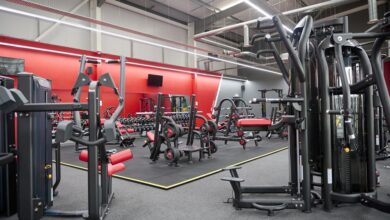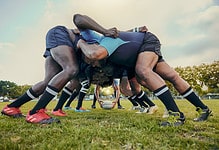
It was one of those days which sorely tempts you to set fire to the shop and run away to join the circus.
My assistant Norman got into a row with a man who wanted to buy one football boot lace and at coffee-time the milk was off.
We had a delivery of mauve shin-pads we hadn’t ordered and a non-delivery of red and silver Taiwan trainers that we had.
I went to the bank and was within an ace of being kept in for observation.
A bloke called to say we had read the gas-meter wrong and we owed them £475. And that was only until lunch-time.
As we were locking up, Norman said that a few years ago we would have taken all that stuff in our stride.
But now it was really getting to us.
We needed to learn how to deal with anxiety and anger.
“I was watching a programme on sports psychology,” he said. “And that’s how Premier League footballers are trained to think.”
“Come off it,” I said. “All they think about is: ‘Should I buy a Bentley Continental GT or a Lamborghini Gallardo?’ and ‘Is Dubai in America?’.’”
A fortnight later we were at a sports psychology taster session at the town football club given by a man who had helped Wolverhampton Wanderers be relegated twice in successive seasons.
Apparently he’d done a bit better since then.
The psychologist, who was called Mike (aren’t they all?), certainly knew his stuff. He said that everyone could benefit from the techniques being taught to footballers and which centred on the prefrontal lobe of the brain, which is apparently vital for decision-making and fighting stress so long as it isn’t overloaded.
“How you talk to yourself affects the chemistry of the brain,” Mike said. “It works better when you’re positive. That’s why we get players to practise capturing negative thoughts and converting them into positives. We call it squashing ANTs – that’s automatic negative thoughts.”
He said that positive language releases dopamine and nordrenaline which enables the prefrontal lobe to fire more effectively and increase your energy and resilience.
Over a cup of tea, Mike told us that standing up straight can also make all the difference to our mental state.
“We tell players that if their eye-line is lower than the corner flag they’re in trouble. Standing straight can increase efficiency and confidence by 19 per cent.
“If you have your head down and your shoulders slumped, your brain chemistry changes for the worse. That’s why managers take off the players who aren’t standing up straight. It’s common sense really.”
“It could be they’ve broken a leg,” someone at the back said, but Mike said that was just being silly.
“If it’s good enough for Rooney, it’s good enough for you lot,” Mike said, and you couldn’t argue with that.
Afterwards, Norman said he would stand up straighter in future and speak positively regardless of the circumstances.
So why not give it a try, boss? We’ve got off to a fairly good start.
The man who bought one boot lace has come back for the other and the gas company have sent a revised bill for £67.30p.
The Taiwan trainers should arrive by the end of the week and there are rumours that there might be some changes at the bank.
I wasn’t expecting that standing up straight and saying yes when you mean no could have quite such a dramatic effect.











